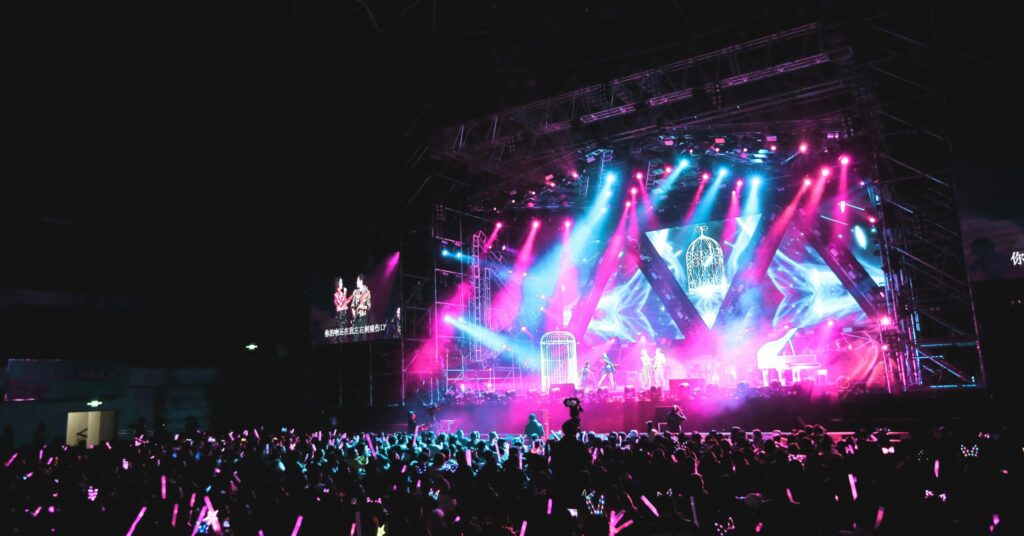
In 2012, a Korean artist in sunglasses and a tuxedo horse-danced his way into global consciousness with “Gangnam Style,” racking up a billion YouTube views faster than anyone had before. But beneath the viral surface was something deeper an ecosystem of branding, training, and global strategy years in the making. Fast-forward to the present BTS, Blackpink, and other K-pop titans are not just dominating stages they’re reshaping how audiences connect with culture, commerce, and identity.
As the Hallyu Wave surges across continents, it’s no longer just an entertainment phenomenon it’s a masterclass in strategic brand building. From meticulously crafted idol personas and fan-driven marketing to cross-border collaborations and localized content, the K-pop industry has unlocked a blueprint that global companies are only beginning to study.
This article explores how K-pop’s business genius lies in its ability to fuse emotional resonance with commercial precision offering global brands powerful lessons in storytelling, community building, and cultural adaptability.
Sculpted Identity: Branding That Feels Personal
K-pop’s business brilliance begins with the way it turns identity into a marketable brand. Entertainment agencies meticulously design idol personas that evoke emotion, aspiration, and consistency. BTS’s “Love Yourself” wasn’t just an album it became a global message, entwining music, merchandise, and fan loyalty into a single emotional brand. I’ve felt this in my own creative journey: when they choreograph dance videos or write rap verses, They are not just performing they are presenting a curated version of who they are. Every color, lyric, and frame reflects values and vision. For global businesses, this lesson is vital branding isn’t just aesthetics, it’s identity expressed with purpose, rhythm, and heart.
Cultural Fusion: Local Roots, Global Reach
The secret to K-pop’s international success lies in its genius for “glocalization.” Artists like BLACKPINK collaborate with Western icons while preserving Korean cultural aesthetics from hanboks on global stages to Korean phrases in their lyrics. It’s a dance of cultural pride and strategic expansion. I channel this approach in my own contents by pairing Hindi with Korean and planning workshops that celebrate Indo-Korean connections. The strategy is not about replacing one culture with another it’s about layering them meaningfully, Indian brands looking to expand globally can learn from this: stay rooted, speak locally, but resonate globally.
Symbolic Strategy: The Power of Numbers
In the world of K-pop, symbolism is serious strategy. BTS’s devotion to the number seven reflects unity and legacy, while idol names often undergo numerological analysis for phonetic charm and vibrational harmony. I’ve applied similar thinking in my business brands name, they’re strategic anchors that make a brand feel intentional and emotionally compelling. In culturally rich markets like India, where symbolism shapes decisions, global businesses can tap into this layer of meaning to forge deeper connections with audiences.
Fans as Co-Creators: Building Emotional Ecosystems
K-pop revolutionized marketing by turning fans into collaborators. Platforms like Weverse, VLive, and fancafés foster interaction, feedback, and a sense of belonging. Fans help choose merch designs, direct tours, and even influence choreography. In my content journey, I’ve embraced this ethos: refining hashtags, reshaping videos based on comments, and observing which posts spark dialogue. Business Blasters taught me the same branding that listens thrives. Brands today must shift from monologue to conversation. By giving your audience agency, you transform passive consumers into loyal community builders.
Content with Soul: Storytelling in Motion
A K-pop teaser can trend in minutes, not just because it’s well-produced but because it carries soul. Choreography, cinematography, and symbolism work together to tell stories that fans return to again and again. This resonates with my personal approach to the GKS journey. Kpop company know Dance isn’t just movement it’s my way of narrating dreams, and rap isn’t just rhythm it’s my academic journey woven into verse. Content becomes the canvas where identity meets audience. For businesses, this is a wake-up call: marketing isn’t about noise, it’s about narrative. Strategic content tells stories that stick, resonate, and build brand legacies.
Conclusion
K-pop’s rise isn’t just a catchy melody; it’s a strategic masterclass blending identity, culture, and commerce into a single, pulsating brand. From the artful creation of idol personas to the numerological care behind naming, from glocal adaptation to fan-led ecosystems, the Hallyu Wave proves that branding rooted in emotion and cultural fluency resonates far beyond borders.
For global businesses and creative minds anywhere this isn’t just inspiration, it’s invitation. To reimagine marketing not as manipulation, but as storytelling. To build brand legacies that move like choreography and speak like poetry. To use numbers, nostalgia, and nuance to connect meaningfully with audiences who crave authenticity.
As someone working and making plans to bridging cultures through community and business I see this wave not just as a trend but as a toolkit for transformation.
Article by: Nandani Singh